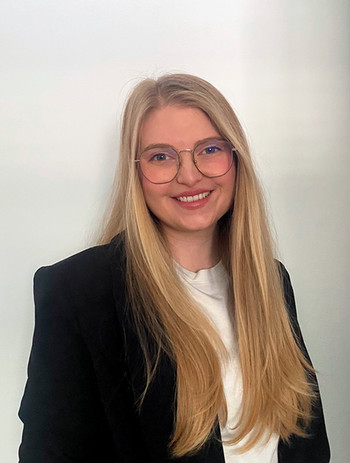SGS Celebrates Graduate Student Winners of Federal Tri-Council Awards - Narissa Byers
Author: Andrea
Posted on Apr 17, 2025
Category: Student Stories , News and Events

Profile of: Narissa Byers
Award Received: NSERC Canada Graduate Scholarship-Doctoral
Awarded for the project: Eye Movements and Perceptual Processing During Reading in Linguistically Diverse Older Adults: An Eye-Tracking Investigation
Department: Psychology
Supervisor: Dr. Veronica Whitford
What happens to our ability to understand printed information as we age? As the global population of older adults (60+ years) rapidly grows, including right here in New Brunswick, it becomes increasingly important to determine how age-related changes in the brain affect neurocognitive abilities that are essential to daily life, such as reading. Reading is a fundamental skill that enables individuals to stay informed, manage finances, understand medical information, and make important healthcare decisions. However, most of our understanding of how aging impacts reading comes from studies involving healthy older adults. Therefore, much less is known about reading in older adults experiencing non-normative forms of aging, such as mild cognitive impairment (MCI), characterized by more pronounced, yet non-debilitating declines in neurocognition.
My doctoral work is part of a large-scale research program, funded by the Canada Research Chairs Program, New Brunswick Innovation Foundation, and NSERC, investigating reading and reading-related processes (e.g., language, executive functioning) in older adults with diverse cognitive and linguistic profiles (i.e., monolingual and bilingual older adults experiencing normative vs. non-normative aging) by means of behavioural, eye-tracking, and neurophysiological techniques. My doctoral research will specifically focus on eye movements (fixations, saccades) and parafoveal processing during sentence-level and text-level reading in native English-speaking older adults who are cognitively healthy compared to those with probable MCI. More effortful eye movement reading behaviour (e.g., more/longer fixations) and reduced parafoveal processing are predicted in the MCI group.
Additionally, to support the development of earlier and more cost-effective diagnostic tools for cognitive aging, I will apply machine learning techniques to determine if eye movement reading patterns can differentiate between cognitive aging profiles. Ultimately, my doctoral research will provide valuable insights into how normative and non-normative aging impacts a key neurocognitive skill that is needed to maintain functional independence and quality of life—reading.
